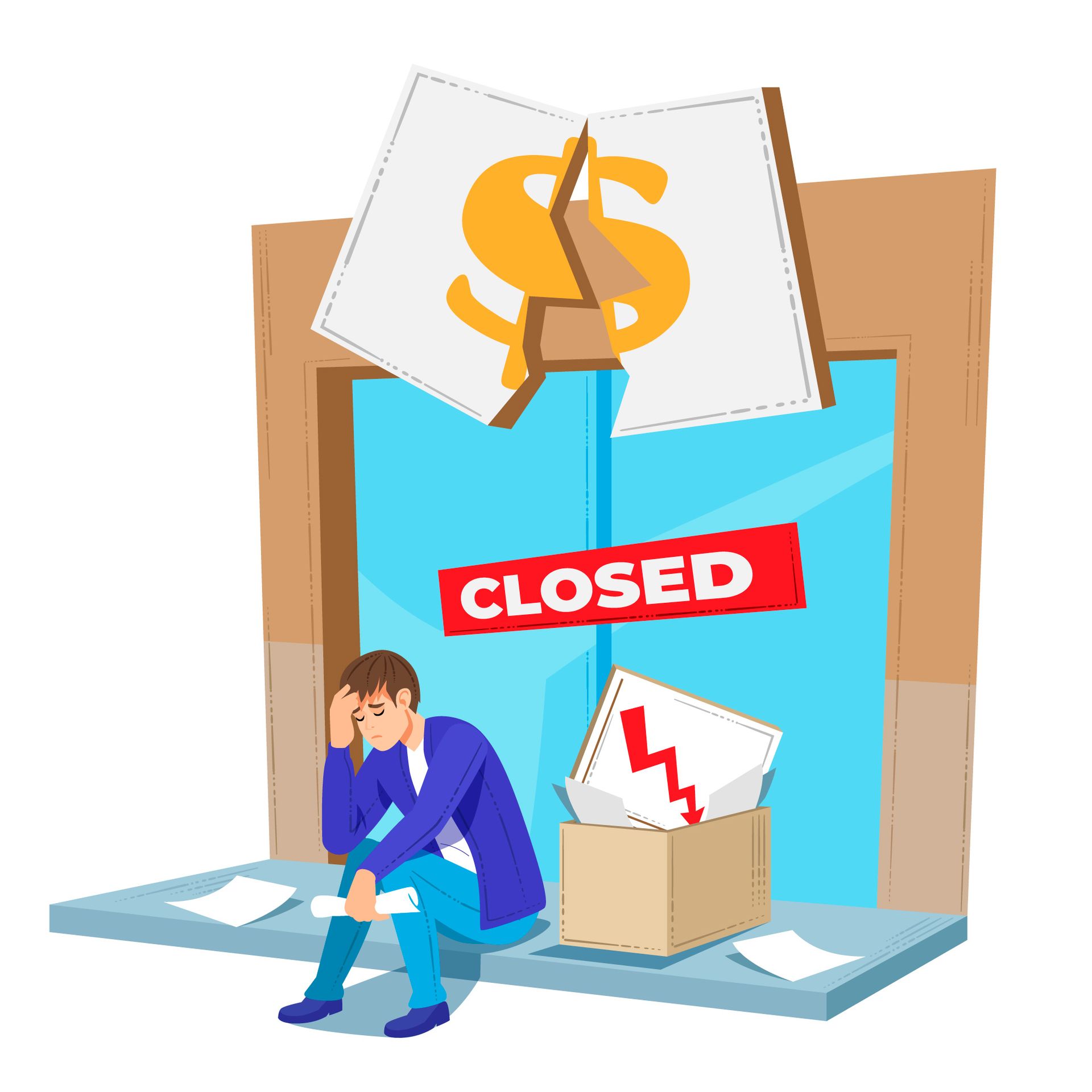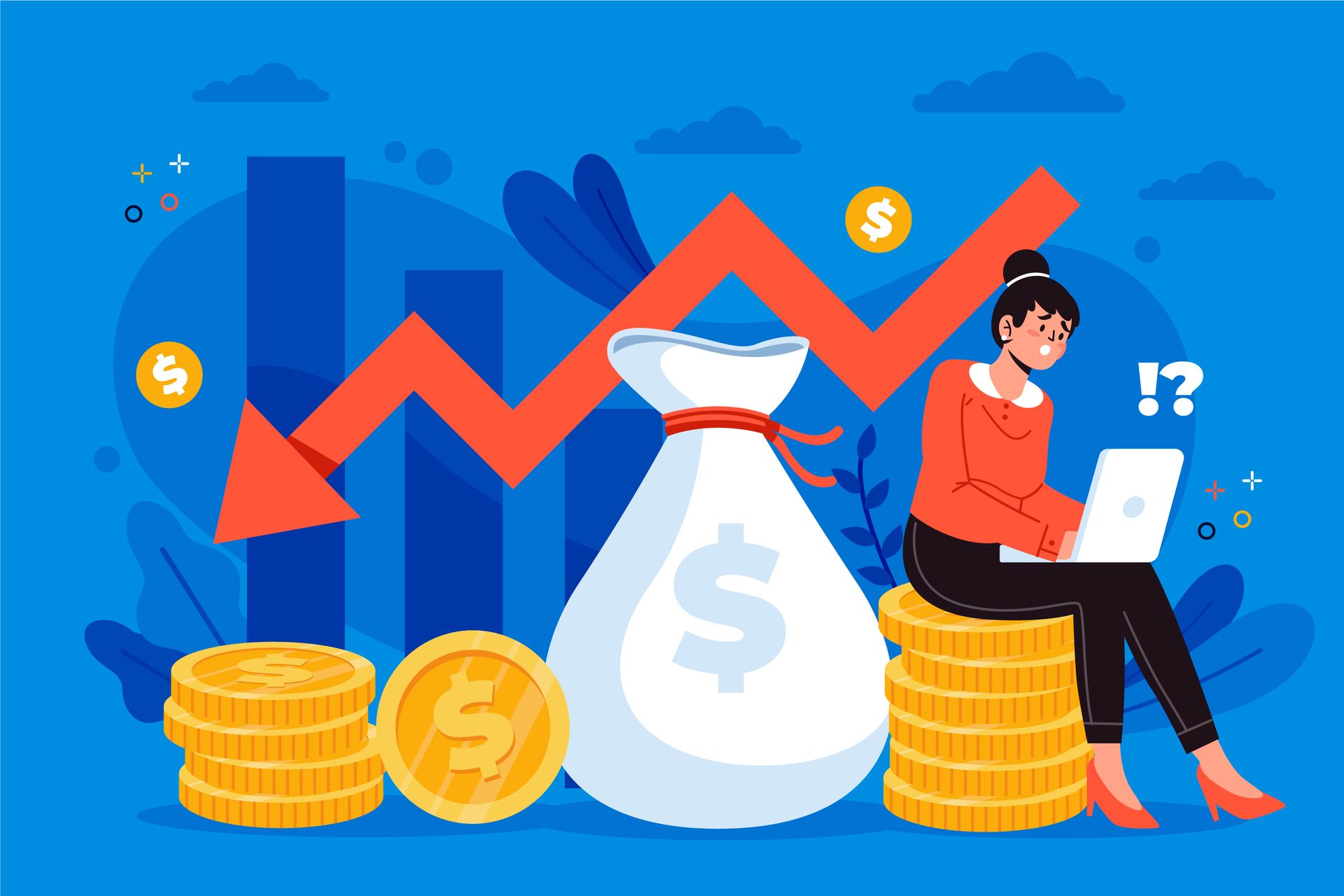The Different Types of Bankruptcy
Most people know that there are different types of bankruptcy or different “Chapters” in bankruptcy. It can be interesting and useful to understand the different types of bankruptcy and the advantages and disadvantages of each. We hear about Chapter 11 the most because it is in the news when big companies or well known people have to file bankruptcy. But most people instinctively know that it is for big businesses or people with a lot of debt. The most common type of bankruptcy is Chapter 7 followed by Chapter 13. If you end up having to file bankruptcy it is most likely going to be one of these. Chapter 12 is for some fishermen and family farmers and Chapter 9 is only for governmental entities.
Chapter 7 Bankruptcy
Most of our clients file Chapter 7, the most common and simplest type of bankruptcy. Usually, it isn’t that expensive, especially for basic cases. With our help, their debts are all discharged but they keep all of their assets.
We believe that a good bankruptcy attorney is essential. We will help advise you if you qualify for a Chapter 7 case and whether you would lose anything you own if you file. We will help you complete the 40 or so pages of legalese that have to be filed with the Court and prepare you for your Court hearing. Then, we’re there for you after your case to help you rebuild your credit or respond if someone is trying to collect a debt that was discharged.
Our clients usually are able to rebuild their credit and even qualify for a home mortgage within just a few years. There are some kinds of debt that can’t be discharged and some assets that aren’t protected but when this happens, we are there to help deal with it as well so that you know all of your options. There are very few problems that can come up that we haven’t seen and dealt with before.

Eligibility for Chapter 7
Almost anybody or any business is eligible to file Chapter 7. A joint case can be filed by a husband and wife or registered domestic partners, but just one spouse can file too if the other one doesn’t want or need to file.
Various business entities are eligible to file Chapter 7, like an LLC, a C-Corporation, or an S-Corporation. But often there is no reason for them to file since they are not eligible to get a discharge. Also a company bankruptcy doesn’t automatically protect the owners of the business if they are personally responsible for some of the company debt. We can help you decide if it is a good idea to file a Chapter 7 for your business or if it is better just to wind up its operations and sell its assets yourself.
The most common reasons you might not be eligible to file Chapter 7 are the waiting periods and the means test.
Waiting Period
The bankruptcy code has an 8-year waiting period before you can file Chapter 7 if you already had to file before. This isn’t counted from the date of the discharge but instead begins on the filing date of the earlier case. But if you needed bankruptcy court protection right away, you could file Chapter 13 because the waiting period is only 4 years instead of 8 before you are eligible to file Chapter 13. Thus, if you had to file a bankruptcy on July 15, 2018 and received a discharge in that case, you are eligible for a Chapter 13 now but you would have to wait until July 16, 2026 before filing Chapter 7.
MEANS TEST
This is pretty complicated but the good news is that it doesn’t apply to that many people. For it we have to first consider your gross income for the last six months. The average is measured against the average income for comparable family size. The average income figures are updated regularly and are available at https://www.justice.gov/ust/means-testing but of course you can just contact us. We’ll help find out if the means test would be a problem that might keep you from filing Chapter 7.
For example, if you live with just your spouse and together have gross income of more than $150,000.00 per year before taxes, the means test might mean that you couldn’t file Ch 7.
There is a second part to the means test, so sometimes, even though you are over the average income, you may still be eligible for Chapter 7 based on the kind of debts you have and your monthly expenses. We can help you see if this might be possible in your situation.
If you aren’t eligible for Chapter 7, it usually means that you have to file Chapter 13 to get bankruptcy protection. This isn’t the end of the world but it is more difficult than filing Chapter 7.

Role of the Trustee
The Chapter 7 Trustee is appointed to handle your bankruptcy case for the court. They are required to look for any assets that are non-exempt. They also see if you have made any payments or transfers that could be pulled back to get funds to pay your creditors. In Oregon, the same Chapter 7 trustees have handled cases for years and so we have worked with them many times before.
But mostly their duties really involve running the bankruptcy hearings. One of them will be asking you questions when you have to call in for your hearing. Since we have had so many cases with each of the trustees, we know pretty much all of the questions that they are likely to ask and so we will have you thoroughly prepared to answer them.
The vast majority of Chapter 7 cases are “no asset” cases. However, if you have something with non-exempt equity or made a transfer or payment to someone you don’t want the trustee to go after, we can negotiate with them on your behalf. We will try to find a way for you to retain your assets or get the trustee to leave the recipient of the payment or transfer alone. Usually this means making a payment arrangement with them.
Debts That Can Be Discharged
There are some kinds of debts that can't be discharged in Chapter 7 like court ordered restitution, child and spousal support, payroll taxes and recent income taxes.
Sometimes there are debts that the person or company you owe can ask the Court to declare non-dischargeable, such as debt they think that you incurred when you knew or should have known that you weren’t going to be able to pay. We will negotiate for you when this happens to try to get a payment arrangement you can afford.
Student loans are the subject of some very recent changes in how the Department of Education and Department of Justice are going to handle requests to discharge them. The result is likely to be that many, many more people are going to be able to discharge their student loans in bankruptcy.
Check out our recent blog on the new guidelines for discharging student loans in bankruptcy.
Also, remember that while Chapter 7 can discharge debt, it doesn’t wipe out a creditor's claim to collateral, such as a car loan or mortgage. Instead, it just prevents the lender’s ability to do anything other than taking the collateral.
Of course, you can just keep making payments and reaffirm the car loan if you want to keep your vehicle.
When we review your circumstances to evaluate your potential for a bankruptcy case, we consider if there are some debts that won’t be discharged and what options you have for handling them. Sometimes you may want to consider filing Chapter 13. This may allow you to pay the secured debts while paying nothing on unsecured debt.
Chapter 13 Bankruptcy

Chapter 13 is an alternative to Chapter 7. We consider it only for our clients who would have some problems if they filed Chapter 7. It lasts much longer, usually 5 years, but, even if you have non-exempt assets, you don’t lose anything you own. In addition, you can get bankruptcy protection for 5 years instead of just 3 months or so. This is important because then you can pay debts through your plan that would be subject to collection after Chapter 7, like recent taxes or back child support or alimony.
Eligibility for Chapter 13
To be eligible for Chapter 13 bankruptcy, you have to have a regular income. So someone who has no income at all cannot file Chapter 13. However, the income can be social security, unemployment or retirement, or even child support or alimony (all of which are exempt from collections under Oregon law). However, it can not be funded, for example, by selling property or waiting for a settlement.
Also, there is a limit to how much debt you can have. This limit was raised and changed in June, 2022. Before, you could not have more than $1,395,875.00 in secured debt or more than $465,275.00 in unsecured. Now, your overall debt, secured or unsecured, is limited to $2,750,000.00 instead of being split into those categories. This means that you could still be able to file Chapter 13 even if you have much more than the old limits in either secured or unsecured debt.
Only non-contingent, liquidated, undisputed debt counts so a lawsuit or other claim that has not been determined to be valid or the amount of which hasn’t been determined isn’t included. Also, a personal guarantee of a debt that isn’t in default wouldn’t be included.
If you are over this $2,750,000.00 limit in secured and unsecured combined, then you may have to consider Chapter 11, if you need bankruptcy court protection. For some individuals, a streamlined version of Chapter 11 called Subchapter V, is available.
Fishermen and farmers who exceed this limit are eligible to file Chapter 12.
You can always keep your business if you file Chapter 13. However, only individuals can file Chapter 13 so the only businesses that can be protected by the bankruptcy court in Chapter 13 are sole proprietorships. Sometimes, to be able to protect your business in Chapter 13, you may have to consider selling the assets of their LLC or corporation to yourself. Then you can operate it as a sole proprietorship and get bankruptcy court protection for it in Chapter 13.
Chapter 13 Repayment Plan
The Chapter 13 Plan is the heart of the Chapter 13 case. We prepare the proposed plan for you. There are specific rules that have to be followed. There is a standard form and formulas for how much has to be paid. A Chapter 13 plan does not automatically pay 100% to all creditors. Many plans are approved that pay little or nothing to the general unsecured creditors while paying priority claims, like recent income taxes, or secured debt in full.
The Chapter 13 Trustee reviews the plan and often may propose changes. Other creditors have the right to do so as well. The Court will then approve or confirm the plan and it becomes the blueprint for your path to a Chapter 13 discharge.
Wage Garnishments
As with Chapter 7, Chapter 13 stops wage garnishments as soon as you file. And, for many people, it is possible to recover money that was garnished in the 90 days before the case was filed. This money can usually be paid to the person in bankruptcy but can also be used to fund the Chapter 13 plan.
Chapter 11 Bankruptcy

Chapter 11 has the fewest eligibility requirements of any Chapter. Almost anyone or any business can file Chapter 11. But it is the most complicated and expensive type of bankruptcy and so the cost limits it to people and businesses that are not eligible for the other types of bankruptcy. So its lack of eligibility requirements is one of its advantages.
Chapter 11 is also the most flexible because there are fewer limits on what can be proposed in the Chapter 11 plan.
Retaining Control of the Business
As with Chapter 13 for sole proprietorships, Chapter 11 allows a company to continue to operate even if it has assets that would have been liquidated if it filed Chapter 7.
But because of the expense and complexity of Chapter 11, it is useful mostly for companies that have a strong business model and are facing temporary conditions or circumstances that have affected cash flow.
However, Chapter 11 can also be used when the goal is to liquidate assets and pay priority creditors or to have another company purchase the business's assets. This is especially true where management believes that it can do a much better job of selling the assets than a Chapter 7 trustee could do.
Chapter 11 Reorganization Plans
The Chapter 11 plan is prepared by the attorney for the person in bankruptcy and doesn’t have to follow an official form. It does have to be accompanied by a disclosure statement that gives information about how the company will be operated if the plan is approved.
The Chapter 11 plan is more flexible than the Chapter 13 or Chapter 12 plans. Payment plans can last longer than 5 years or creditors can be given an interest in the reorganized business in exchange for the debts.
But the creditors get to vote on whether to accept the plan proposed by the business or person in Chapter 11 and while the Court can, under certain circumstances, approve the plan even if the creditors don’t approve it, the voting and approval process give the creditors a lot of input into the plan provisions.
Chapter 12 Bankruptcy

Eligibility for Chapter 12
A person or a business is eligible for Chapter 12 if they meet the limits on how much gross income from farming or fishing is required and are under the limits on how much debt they can have. You must have had 50% of your gross income from farming or fishing operations in the previous tax year to qualify. Farmers must have met this limit each of the preceding two years as well.
The debt limit for Chapter 12 increased in April 2022 and will not change again until April 2025. To be eligible to file Chapter 12, your combined secured and unsecured debt can not exceed $11,097,350.00
Chapter 12 Repayment Plan
The Chapter 12 payment plan is somewhere between the Chapter 11 and the Chapter 13 plans in complexity. It is easier to pay secured creditors for the value of their collateral and the creditors do not vote on a Chapter 12 plan. It is also easier to sell assets and hire the professionals like accountants, attorneys, and realtors, needed to help make the Chapter 12 plan work.
Chapter 15 Bankruptcy
Chapter 15 isn’t really a type of bankruptcy. Instead, it is a set of laws that foster cooperation between foreign courts and American courts when a bankruptcy case filed in another country affects a creditor in the United States. It helps determine issues of jurisdiction and also the choice of laws, which means the question of whether the US laws or the laws of the foreign country in which the bankruptcy was filed, will be used to determine what rights the US creditor has.
Chapter 9 Bankruptcy
Chapter 9 is available exclusively to municipal corporations. While this is defined broadly to include cities, counties, townships, school boards, special districts like road or bridge authorities, Chapter 9 hasn’t been used a lot.
In the entire United States, there were no Chapter 9 cases in 2022, four in 2021 and 2020. The year with the greatest number of Chapter 9 cases in the last 20 years was 2012 when 20 Chapter 9 cases were filed.
Get Assistance From a Bankruptcy Attorney

Bankruptcy is complicated and can lead to problems when not done carefully. An attorney can make sure that you aren’t making things worse by filing bankruptcy and can help you decide if Chapter 7 is a good choice for you or if the Chapter 7 trustee would try to sell some of your things or go after a friend or family member for money that you repaid or an asset that you transferred to them.
An experienced and
professional bankruptcy attorney can help you make the right decisions about whether to file and what type of bankruptcy to file. But, just as important, they can make sure that it is done right and that you have help when it is over to rebuild your credit or stop a creditor from trying to collect a debt that was discharged in your bankruptcy.
Types of Bankruptcy FAQ's
-
Which form of bankruptcy is the worst for your credit?
There isn’t one that is the worst but clearly Chapter 7 is the best since you can start to rebuild your credit right away.
-
Can you leave the country after bankruptcies?
Yes. There is nothing to prevent you from leaving the country after filing bankruptcy. We have had clients in Chapter 13 cases who moved out of the country. There was no problem as long as they made their payments and complied with the rest of the Chapter 13 rules. And in Chapter 7, you are pretty much free to spend your money however you want, after the bankruptcy case is filed.
-
Can you take a vacation when you’ve filed for bankruptcy?
Yes. Your budget can include recreational expenses. In addition, it is up to you how you spend your money after you have filed Chapter 7. In Chapter 13, as long as you are incurring additional consumer debt by using credit cards and your vacation costs are within your recreation expenses, you can take a vacation each year. Keep in mind that this doesn’t mean that expensive vacation but just a normal family vacation.








Share On: